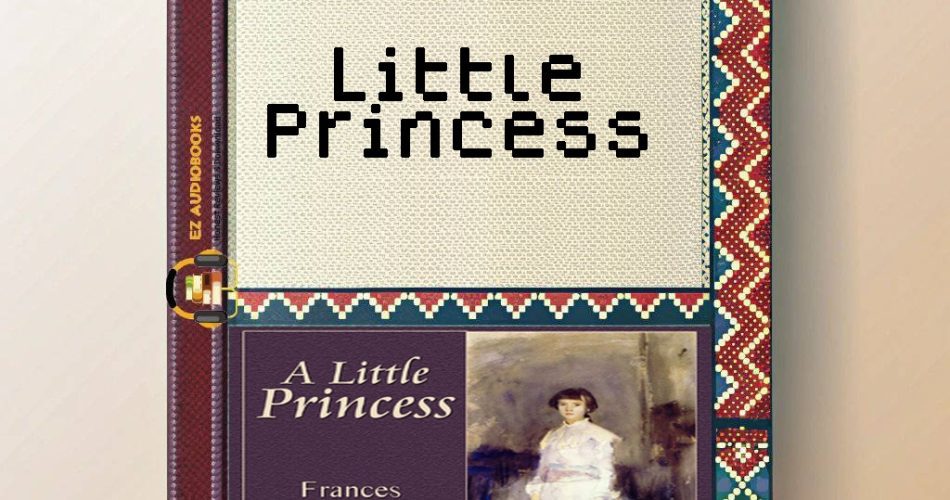Audiobook Sample
Listen to the sample to experience the story.
Please wait while we verify your browser...
- Title: Little Princess
- Author: Frances Hodgson Burnett
- Narrator: Kara Shallenberg
- Length: 07:38:00
- Version: Abridged
- Release Date: 01/01/2011
- Publisher: LibriVox
- Genre: Fiction & Literature, Literary Fiction
- ISBN13: SABLIBX978804
There’s something magical about encountering a classic story through the voice of a skilled narrator. As I listened to Kara Shallenberg’s rendition of “A Little Princess” while winding through the Himalayan foothills last autumn, I was struck by how Burnett’s 1905 novel about resilience in adversity took on new dimensions when experienced as an oral tradition. The rhythmic clatter of my train wheels against the tracks became an unexpected metronome for Sara Crewe’s journey from privilege to poverty and back again.
This audiobook version, freely available through LibriVox, captures the essence of what makes Burnett’s work endure. The story unfolds like a tapestry of Victorian London – you can almost smell the coal smoke mixing with Miss Minchin’s harsh perfume, hear the clatter of china in the school’s kitchen, feel the scratch of Sara’s worn-out dresses after her fall from grace. Shallenberg’s narration brings a warmth to the text that reminded me of those storytelling evenings in Oaxaca, where every pause and inflection carried meaning.
Burnett’s own experience with financial hardship after her father’s death lends authenticity to Sara’s plight. When Captain Crewe’s fortune disappears, we experience Victorian England’s brutal class system through a child’s eyes. The way Sara maintains her dignity while scrubbing floors and running errands – her ‘princess’ identity becoming internal rather than external – resonates deeply in our current age of economic uncertainty. I found myself thinking of resilient children I’ve met in my travels, from Mumbai’s slums to Rio’s favelas, who similarly cling to imagination as a survival tool.
Shallenberg’s performance shines in capturing Sara’s evolving voice. In early chapters, her Sara speaks with the careful elocution of a privileged child, which gradually gives way to the tired but determined tones of a overworked servant, before finally maturing into the measured wisdom of someone who’s seen life’s harshest lessons. The supporting characters are equally vivid – Miss Minchin’s clipped authoritarianism, Becky’s timid Cockney, and Ram Dass’s melodic Indian accent all create a rich auditory landscape.
What makes this audiobook particularly compelling is how it highlights Burnett’s subtle social commentary. Through Sara’s relationships with Becky the scullery maid and the impoverished baker’s daughter, we see critiques of British imperialism and class inequality that still resonate today. The magical realism elements – Sara’s fantasies that blur with reality – take on new life when heard aloud, making the ending’s coincidences feel less contrived and more like the satisfying resolutions of folk tales.
Compared to other Burnett works like “The Secret Garden”, this narration emphasizes the urban fairytale quality of Sara’s story. Where “The Secret Garden” celebrates nature’s healing power, “A Little Princess” finds magic in human connections amidst cobblestone streets. Shallenberg’s pacing perfectly balances the novel’s sentimental moments with its sharper observations about society, preventing it from slipping into melodrama.
The free LibriVox production does have minor audio inconsistencies typical of volunteer recordings – occasional volume shifts and a faint background hum in a few chapters. But these are small prices to pay for such an accessible version of a classic. For listeners wanting to introduce children to classic literature, this audiobook makes an excellent companion for family road trips or bedtime listening, much like those storytelling traditions I cherish from my travels.
As someone who’s witnessed both extreme wealth and poverty across six continents, I appreciate how Burnett doesn’t romanticize Sara’s suffering. The cold attic, constant hunger, and cruel treatment ring true. Yet the story ultimately celebrates how kindness and imagination can sustain us through life’s harshest winters – a message that transcends its Victorian setting. When Sara finally receives her miraculous rescue, it feels earned rather than handed to her, a testament to the character Burnett has built.
For contemporary listeners, the novel offers interesting discussion points about colonialism (Sara’s wealth comes from British interests in India), the ethics of charity, and how we define personal worth. Shallenberg’s narration makes these themes accessible without diminishing their complexity, allowing both children and adults to engage with the story on multiple levels.
May your literary journeys be as transformative as Sara’s attic dreams,
Marcus
Marcus Rivera

